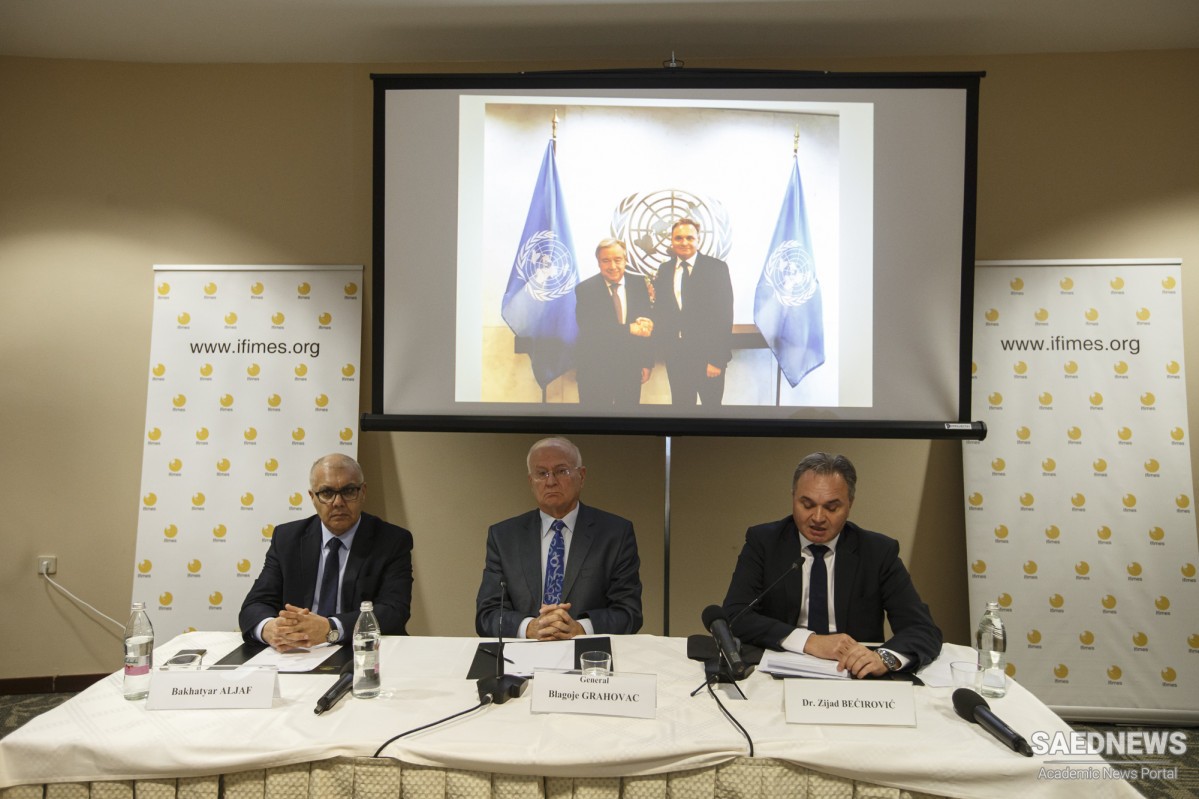This was no doubt partly because the terms of reference were now carefully defined to apply only to border violations and not to the internal causes of the Greek civil war. The Committee was, moreover, likely to be engaged in a continuing investigation of activities on Greece's borders and could make requests to undertake on-the-spot investigations within the territory of her neighbours: this could obviously prove highly embarrassing to those neighbouring countries. The communist states preferred, by boycotting it, to be in a position to denounce the entire operation as a Western-inspired anti-communist manoeuvre, and so to devalue its effect.
Almost as soon as it was established the new committee had to confront a major development. On 24 December 1947, the Greek guerrilla leader, Marcos, announced the establishment of a Greek provisional government, in rivalry to that established in Athens. The!'e seemed a distinct possibility that this body might secure the recognition of Greece's communist neighbours, and that these might then proceed to give it military and political support. UNSCOB, meeting only five days after the announcement of the government's establishment, passed a resolution declaring that recognition of the new government, even on a de facto basis, and the provision of military aid to it, would constitute a grave threat to international peace and security. If it secured evidence of any association between Balkan governments and the new self-styled government, the Committee would call for a special meeting of the General Assembly. The US Government made a similar statement the following day, ajuxtaposition of events which was naturally used to demonstrate the Committee's pro-Western bias.
It still seemed likely that recognition of the new authority by Greece's neighbours would follow. Indeed, if the Balkan governments had formed their own policies independently, there is every likelihood it would have been recognised. But Stalin himself had at all times, it seems, kept in mind his understanding with Churchill, reached in 1944, that Greece should be regarded as outside the Russian sphere of interest (Britain had in return recognised a predominant Russian interest in Romania and Bulgaria). At any rate, no recognition of the self-styled government took place. And it seems more likely that it was the Soviet Union's influence, rather than the warning presented by UNSCOB, which deterred Greece's neighbours from making such a move.
The Greek civil war, however, continued. UNSCOB made a succession of reports about evidence of assistance for the guerrillas. It reported that arms and supplies of all kinds were reaching the guerrilla forces from Yugoslavia, Albania and Bulgaria. It discovered a radio transmitter located near Belgrade that was broadcasting propaganda and entertainment for these forces. It found that the Greek guerrillas frequently crossed the border to find refuge in the neighbouring states. Albania, Yugoslavia and Bulgaria, on the other hand, continued to maintain that they gave no assistance to the rebels other than occasional asylum for those who requested it.
In May 1948, the Committee reported a new development. It provided evidence that the Greek Democratic Army, the main guerrilla force, had sent large numbers of Greek children across the border to Bulgaria for care, training and indoctrination. Many of these were no doubt the children of the guerrillas themselves, sent away to avoid the danger of reprisals and warfare in Greece. The communist states described the children as refugees, seeking to escape the repressive policies of the Greek Government, which threatened to use them as hostages for their fathers' guerrilla activities. The Greek Government, however, claimed some were taken away unwillingly, and against the will of their parents, apparently to be used as hostages.
Although Albania, Bulgaria, Yugoslavia and the Soviet Union had at first refused to recognise the competence of the Committee or to allow it to visit their territory, they did make frequent reports to it of alleged Greek provocations on their own borders. In time they relaxed their refusal to co-operate. In April 1948 Bulgaria even agreed to allow an inspection team into Bulgaria, so that it could interview a Bulgarian officer, Tsouroff, who alleged violations of Bulgaria's borders by Greek forces. The Committee of course welcomed this development and reported the officer's attitude as correct and cordial. It is perfectly possible that, in the fighting in the north, Greek forces had overstepped the border, and the Bulgarian Government was no doubt only too happy to provide evidence of such an incident. The Committee, however, reported more widespread evidence of logistic supply for the Greek guerrillas from Albania and the sheltering of guerrilla forces in Bulgaria and Yugoslavia.


 United Nations and the Birth of a New Security System
United Nations and the Birth of a New Security System














































